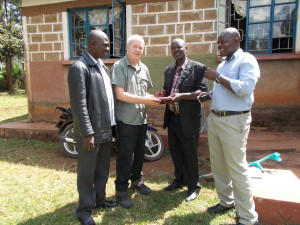The schools have reopened on 2nd September 2013 after the truncated summer break (some schools extended their previous term into August to help the pupils catch up after the Teachers’ strike finished).
In Oyugis our schools liaison person will be visiting each of the 7 schools to meet face-to-face with the teachers to discuss their progress to date and to agree on how to improve the ways the kindles are used to help the teachers and the pupils.
To prepare for these discussions we reviewed all the purchases made to date.
- There were 74 items ordered, these include free books, the bible, occasional newspapers, text and reference books, and various novels including various crime novels
- Roughly 14 books were directly related to Swahili and/or the Kenyan curriculum
Most of the items seem to be feasibly relevant to the schooling however we’re concerned about some of the seemingly irrelevant purchases, particularly once schools had become more familiar with using the devices.
We aim to help the teachers and the schools to limit the amount of irrelevant items in future. One of the safeguards is the relatively limited funds made available to each Amazon account. When the funds are spent they are spent and the school needs to account for their purchases. Schools who spend wisely are able to buy more relevant books and receive top-ups more easily than schools who’ve spent unwisely. The unwise schools are asked to commit to buying more relevant items before they receive a top-up to their account.




